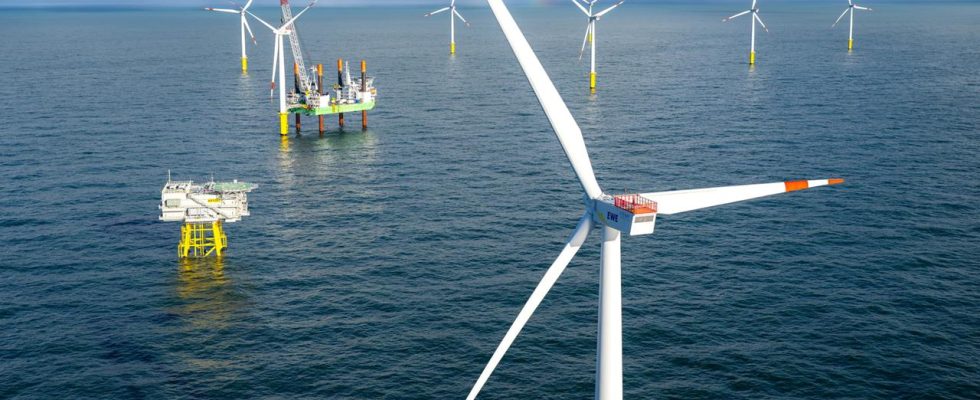The Federal Audit Office has given the government a poor report for the energy transition. The expansion of renewable energies is progressing too slowly – and this is driving up the price of electricity.
From the perspective of the Federal Audit Office, the government is not on track with the energy transition. “The measures taken so far to implement the energy transition are inadequate and therefore pose serious risks for the energy policy goals,” said Auditor General Kay Scheller.
The basis for the criticism is a new one Special report of his house to implement the energy transition in the electricity supply. “The federal government must react immediately, otherwise the energy transition risks failing,” it says.
The expansion of renewable energies is lagging behind
The Court of Auditors sees specific deficiencies in the expansion of renewable energies and the electricity grid, which, according to the report, is progressing very slowly. In addition, there is not enough additional generation capacity if needed.
Court of Audit President Scheller argues that the expansion of onshore wind energy is lagging far behind. In 2023, for example, only half of the projects actually needed were awarded. It is therefore not realistic that the deficit will be made up this year. There is also a lack of monitoring that keeps an eye on the consequences of the energy transition for land, biodiversity and other environmental damage.
Electricity costs continue to rise
The federal government has set itself the goal of covering around 80 percent of electricity consumption with wind, water or solar energy by 2030. In order to compensate for the fluctuating production of renewables, gas power plants are to be built and subsidized, which will be operated with climate-friendly hydrogen over the years.
According to the Court of Auditors, a slow expansion of renewables could have a negative impact on the price of electricity. “High electricity prices represent a significant risk for Germany as a business location and the acceptance of the energy transition,” says the report. Electricity prices in Germany have risen continuously in recent years. They are among the highest in the EU – and further price increases are foreseeable.
In addition, the expansion of the networks is becoming increasingly expensive, which the government is not making transparent: by 2045, investment costs of more than 460 billion euros will have been incurred for the expansion of the electricity networks alone. This in turn will make energy more expensive, said Scheller.
In order to counteract the very high electricity prices, the federal government has repeatedly subsidized them selectively with state funds. This also creates a false picture of the actual costs of the transformation, the report says.
Safe, affordable and environmentally friendly?
The goals of the energy transition are clearly defined for the federal government in the Energy Industry Act. It states that the energy supply should be safe, affordable and environmentally friendly.
According to the Court of Auditors, the government is currently failing to achieve its goals in all respects: “Secure supply is at risk, electricity is expensive, while the federal government cannot comprehensively assess the effects of the energy transition on the landscape, nature and environment,” said Scheller.
The Federal Ministry of Economics defended itself against the report in a statement. For example, the electricity tax has been reduced and the costs for promoting renewable energies now come from the federal budget and are not passed on to electricity customers.

